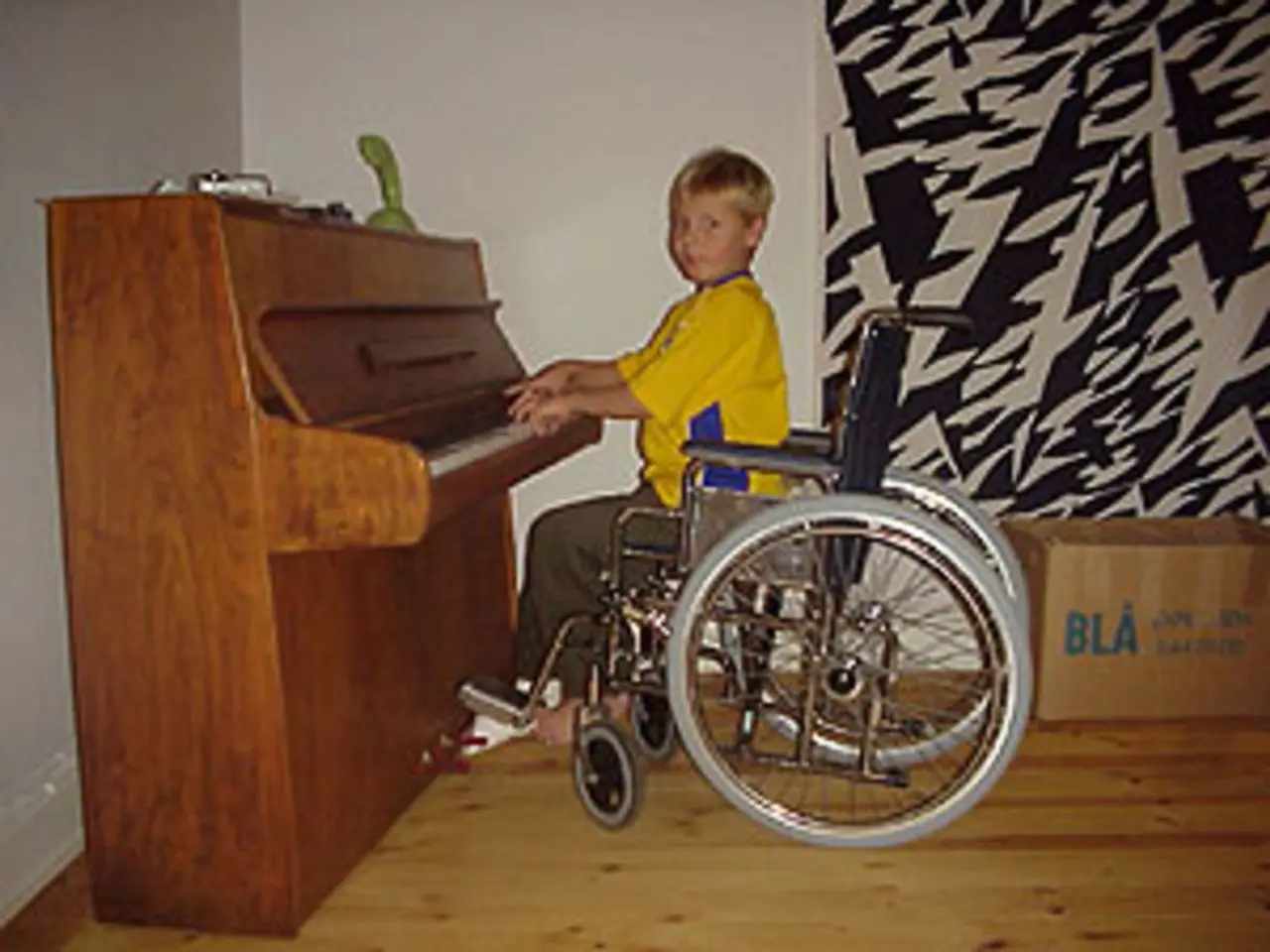Predilection of Autistic Individuals Toward Routine and Orderly Environments
Managing Sensory Overload and Anxiety: The Importance of Routines for Autistic Individuals
Routines play a crucial role in helping autistic individuals navigate their daily lives, offering a sense of predictability, structure, and opportunities for sensory regulation. This, in turn, reduces uncertainty and emotional distress.
For autistic adults, a well-crafted routine is a form of self-care and autonomy. It provides a comforting sense of order in a chaotic world, preventing mental fatigue from constantly adapting to new situations.
Daily Structure Routines
Regular, consistent timing for waking up, meals, and bedtime anchor the day and ease transitions between activities, providing stability and reducing unpredictability-induced anxiety.
Sensory Regulation Routines
Scheduled sensory breaks with self-soothing behaviors such as stimming, listening to calming music, using weighted blankets, or engaging with sensory tools (e.g., fidget toys, noise-canceling headphones) help prevent or alleviate sensory overload by delivering calming sensory input or reducing excessive stimuli.
Emotional Regulation Routines
Planned downtime for relaxation techniques like deep breathing exercises, journaling, or quiet time enables processing of emotions and stress relief, promoting overall wellbeing.
Special Interest Routines
Regular engagement in preferred hobbies or interests provides enjoyment and focus, which can serve as comforting rituals contributing to emotional balance and reduced anxiety.
Additional supportive measures include visual schedules to enhance understanding and predictability of daily activities, and creating sensory-friendly environments with soft lighting, quiet spaces, and calming sensory tools.
It's essential to remember that routines should be personalized, consistent, and incorporate sensory-friendly elements and self-soothing strategies. A one-size-fits-all approach may not work for everyone, as what works for one autistic person might feel too restrictive for another.
Incorporating enjoyable activities into a routine will make it more motivating and sustainable. However, routines should not be overly rigid. Practicing small variations in safe moments can make one more adaptable over time.
Routines are not just for children but are essential for autistic adults to manage work, household responsibilities, and self-care. Small disruptions can leave autistic individuals feeling disoriented or anxious. In some cases, a sudden change can trigger an autistic meltdown or shutdown due to the loss of that safe, expected pattern.
When a well-established routine is suddenly changed, stress levels can spike for many autistic people. Bigger changes may require extra support and self-care during the transition. If a routine or habit helps lower anxiety, manage sensory input, or get through the day more easily, it's worth respecting.
However, if a routine is hindering ability to learn new things, socialize, or get enough sleep, it might need to be adjusted. Routines serve as a vital coping mechanism for autistic individuals. But they should not become a barrier to growth and development. When it comes to routines, the key is finding a balance that works best for each individual.
[1] American Psychological Association. (2020). Autism Spectrum Disorder. APA Help Center. Retrieved from https://www.apa.org/topics/autism-spectrum-disorder
[2] National Autistic Society. (2021). Understanding autism. National Autistic Society. Retrieved from https://www.autism.org.uk/about/what-is/autism.aspx
[3] Autism Speaks. (2021). What is autism? Autism Speaks. Retrieved from https://www.autismspeaks.org/what-autism
[4] Mayo Clinic. (2021). Autism spectrum disorder. Mayo Clinic. Retrieved from https://www.mayoclinic.org/diseases-conditions/autism-spectrum-disorder/symptoms-causes/syc-20354729
[5] Centers for Disease Control and Prevention. (2021). Data & Statistics about Autism. Centers for Disease Control and Prevention. Retrieved from https://www.cdc.gov/ncbddd/autism/data.html
- The psychology of emotions in adulthood demonstrates that a well-structured routine can serve as self-care and autonomy for individuals on the autism spectrum, promoting a sense of order and reducing anxiety.
- Nervous system responses to sensory overload in autistic individuals can be minimized through scheduled sensory breaks with self-soothing behaviors, such as stimming, or engaging with calming sensory tools like fidget toys.
- Brain function during periods of stress and anxiety can be improved by incorporating relaxation techniques like deep breathing exercises or quiet time into emotional regulation routines.
- Mindfulness and self-care practices such as journaling and creating sensory-friendly environments can significantly contribute to mental health and overall health-and-wellness for autistic adults.
- Science has shown that routines can help autistic individuals manage stress and anxiety, but it's crucial to remember that each person is unique, and routines should be personalized, adaptable, and focused on enhancing self-care.
- In the realm of behavior, establishing a balance between routines and flexible responses to new situations can help autistic individuals maintain emotional balance, navigating adulthood successfully while also promoting growth and development.




